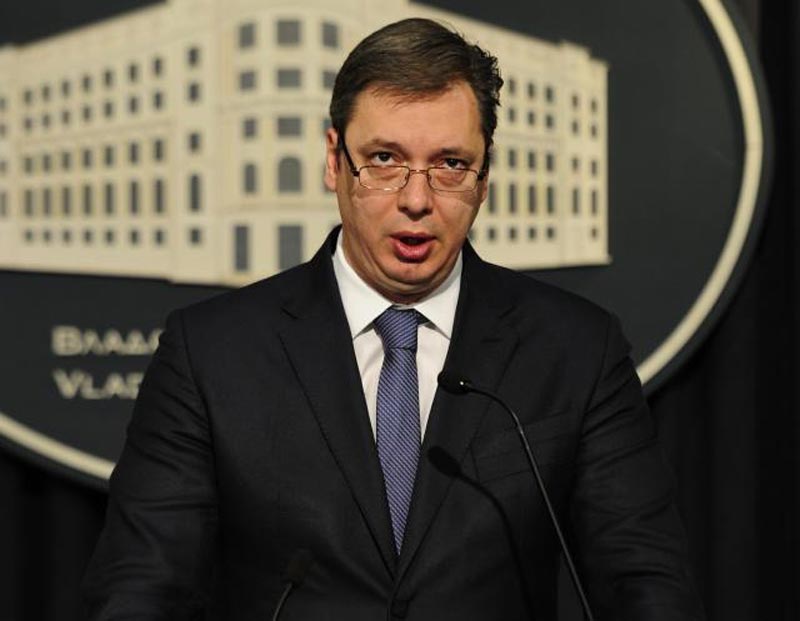
The international court turned down former Bosnian Serb military chief Ratko Mladic’s request to quash the genocide and war crime charges against him midway through his trial.
Judges at the International Criminal Tribunal for the Former Yugoslavia on Tuesday rejected Mladic’s demand for acquittal, saying that the prosecution had presented enough evidence so far to suggest that the wartime general could be found guilty of the charges in all 11 counts of his indictment.
Presiding judge Alphons Orie said that the evidence presented by the prosecution could lead to the conclusion that Mladic was an active participant in a joint criminal enterprise during the 1992-95 conflict.
“The chamber considers that there is evidence upon which, if accepted, a reasonable trier of fact could be satisfied beyond reasonable doubt that there existed a joint criminal enterprise of members of the Bosnian Serb leadership and military, including the accused Mladic and [former political leader] Radovan Karadzic, the purpose of which was to permanently remove non-Serbs from Serb territories through the commission of crimes,” said the judge.
Judge Orie also said that the prosecution witnesses, experts and material evidence was of sufficient quality and quantity that it could lead to the conclusion that Mladic was guilty of genocide in seven Bosnian municipalities in 1992 and in Srebrenica in 1995.
He read out quotes from witness statements about mass killings in Prijedor, Foca and Vlasenica as well as Srebrenica, along with excerpts from Mladic’s wartime diary, saying that they could also lead to the conclusion that Mladic was aware of the crimes committed by his subordinates from 1992 to 1995.
The judge specifically highlighted the testimonies of former Bosnian Serb troops Drazen Erdemovic and Momir Nikolic, who have been convicted of taking part in the Srebrenica killings and testified against Mladic.
“Nikolic testified that in the afternoon of July 13, 1995 he met Mladic on the crossroads in Konjevic Polje where there were Bosniak prisoners. Mladic approached them and said they should not worry. Returning to the vehicle, Nikolic asked Mladic what would really happen to them, to which Mladic responded by smiling and making a sweeping gesture at the middle of his body, from which witness Nikolic concluded they would be killed,” explained Orie.
Referring to evidence relating to the torture and sexual violence charges against Mladic, Orie said that witnesses had made it clear that they suffered “cruel and inhumane treatment” while held at Serb-run detention camps.
He quoted one witness who told the UN-backed court: “They knew that a raped woman can never be healed. They wanted to destroy us.”
The judge added that the court had carefully examined the evidence relating to the charges accusing Mladic of terrorising civilians in Sarajevo and taking UN peacekeepers hostage, and concluded that “there is sufficient evidence for these counts to stand”.
Mladic’s lawyers had argued that there was no evidence that Mladic had genocidal intent or ordered the execution of about 7,000 Bosniaks from Srebrenica in July 1995, and insisted that the prosecution had failed to prove that Mladic participated in a joint criminal enterprise which aimed to exterminate and expel the Bosniak population.
The former Bosnian Serb military chief’s trial started in 2012, after he spent more than a decade on the run. His lawyers will begin presenting his defence next month. (BIRN)



